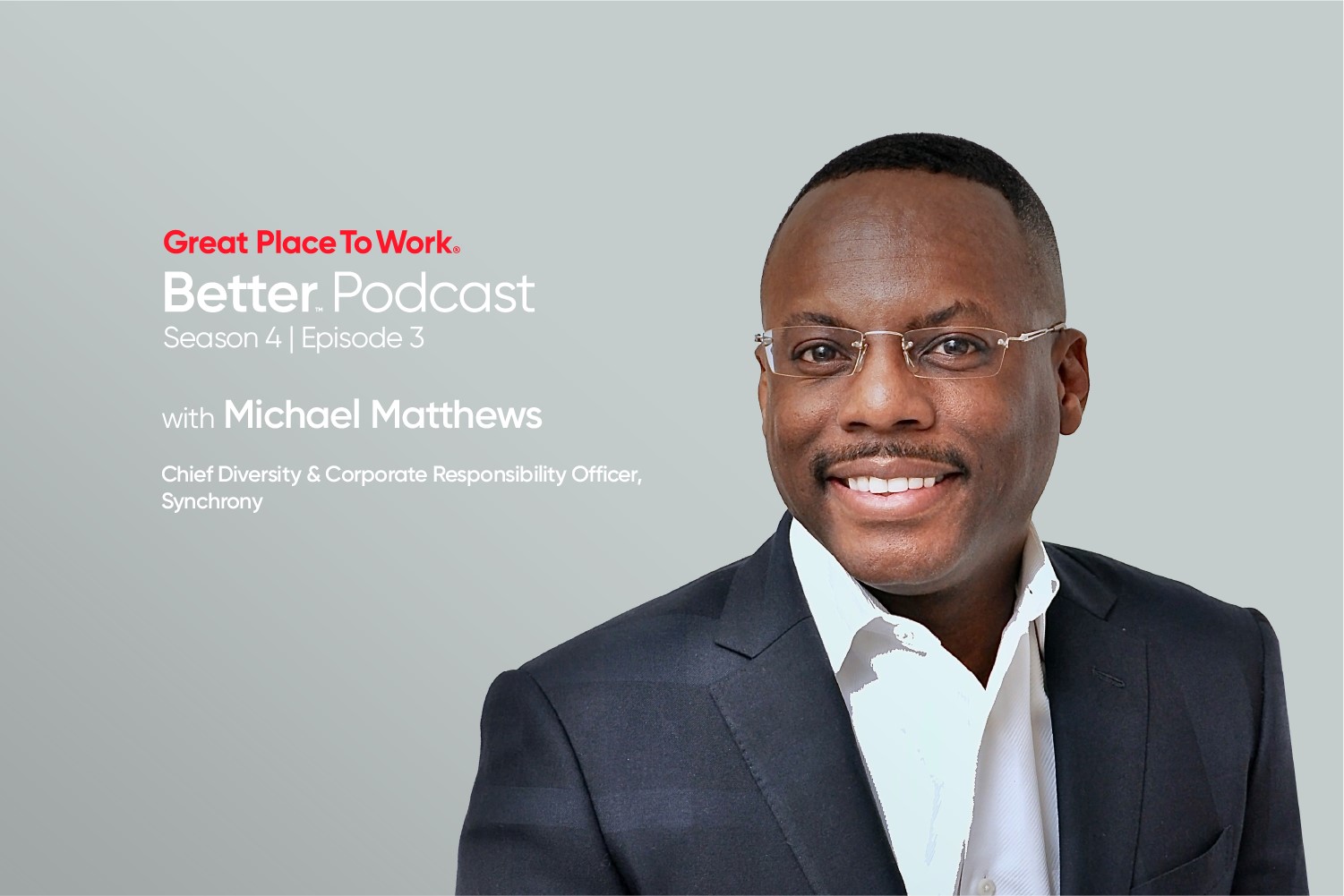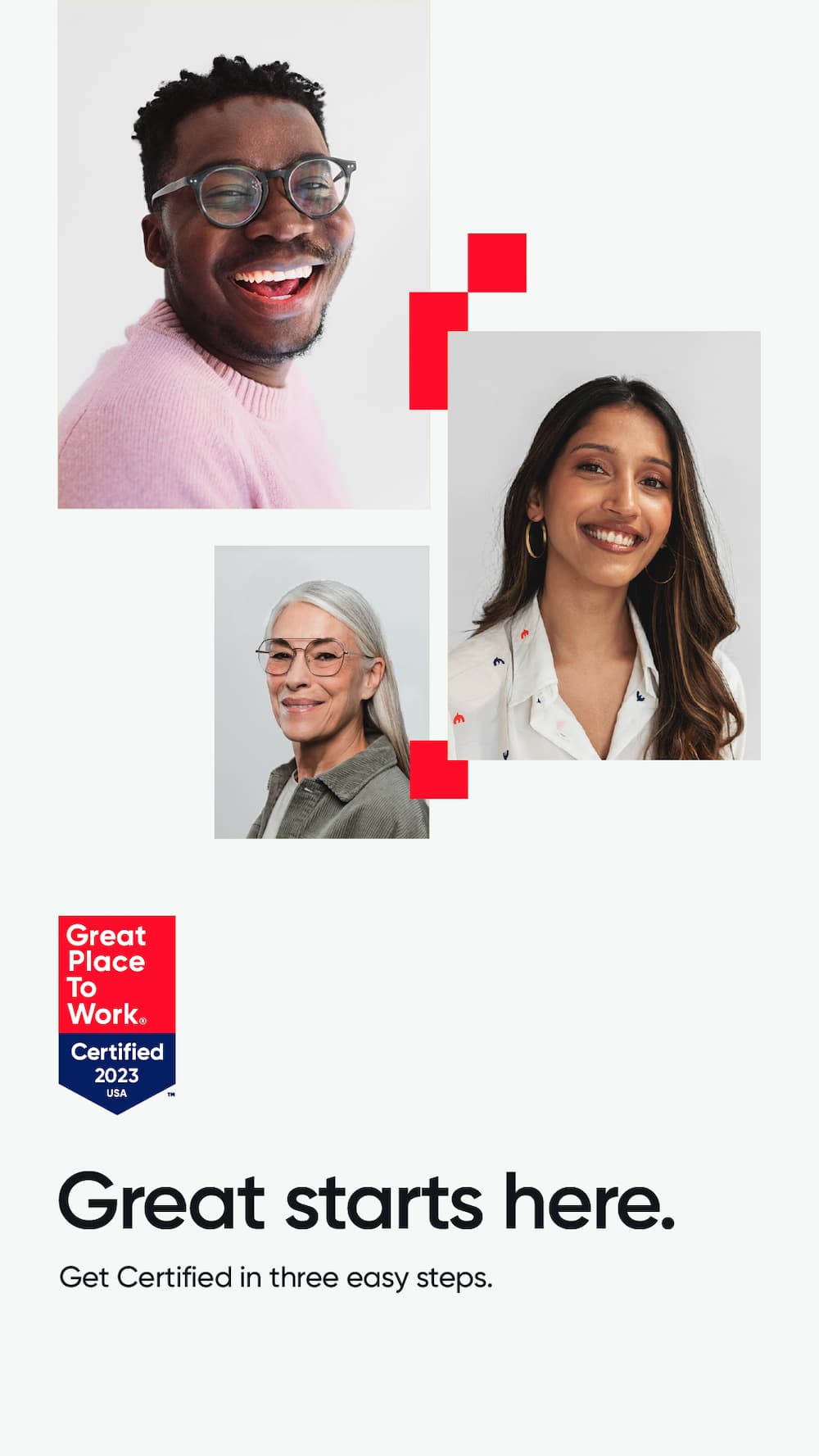Best Workplaces, Developing Leaders, Leadership & Management
Accenture’s Ellyn Shook and UKG’s Pat Wadors offer a new blueprint for leadership.
There is no question: This is a moment for extraordinary and courageous leadership.
Edelman’s 2023 Trust Barometer revealed the precarious situation for economies around the world. Global conflict has grabbed headlines and threatened markets, which has led some leaders like JP Morgan’s Jamie Dimon to issue a stark warning: “This may be the most dangerous time the world has seen in decades.”
Business leaders are also being asked to do more than ever before.
“A lot has changed,” says Ellyn Shook, chief leadership and human resources officer, at Accenture. Shook joined Pat Wadors, chief people officer at UKG, for a panel discussion hosted by Fortune CEO Alan Murray on Oct. 16. The topic of discussion: How great workplaces are developing leaders to build trust and connection with an increasingly fractured workforce.
“What got us here won’t get us to the future in a healthy way,” Wadors says.
[Register for our annual company culture conference May 7-9, 2024]
Defining the new skill set
What are the new tenets of leadership? Shook says Accenture looks at three key traits:
1. Compassion. This starts with empathy, Shook says, but it has to go deeper than just words: “Not just empathy, but doing something about it.”
2. Learning. This trait is crucial in a world where new technology rapidly disrupts business models and industry strategies. “Leaders need to be learners to be successful,” Shook says.
3. Humility. Are you able to consider others’ point of view? Admit when you’ve made a mistake? Recognize that the voices of your employees, your clients, or people in your community must be a driving force behind decision-making for you to be successful, Shook says.
Accenture asks a simple question to assess the performance of leaders: “Are employees net better off working at Accenture?”
Accenture expects to have a positive impact on employees’ health and well-being, as well as ensuring employees feel connected and have a sense of belonging. Employees should also wake up every day feeling they have purpose in their work and have the opportunity to build market-relevant skills.
Wadors has her own term for the work required of leaders in great workplaces: “porpoising down.” The name conjures an image of a leader, like a porpoise, diving deep to learn about the problems that are preventing employees from doing their best work.
“Learn enough to know how to fix things,” Wadors says. “That is your job: to create a healthy workplace for all.”
Listening never stops
Both Wadors and Shook stressed the importance of listening, one of the nine high-trust leadership behaviors, in responding to the complex needs of employees in the workforce today.
Shook points to the Edelman Trust Barometer, which showed that an employer is the most trusted institution for many people. With that level of trust comes a profound responsibility, Shook says, which means employers should consider how they can create space for employees to come together, learn, and share.
“Acknowledge what is happening,” says Wadors. “If [employees] don’t feel seen and heard, it’s hard to move on in a healthy way.”
Both leaders were clear about the need for always-on, robust listening programs.
“I don’t think you turn listening off,” Wadors says. She recommends finding the right cadence for checking in, where managers have a one-on-one conversation and ask simple questions like, “How are you?” and “How can I support you?”
At Accenture, a sophisticated listening framework is all about ensuring that trust is preserved between employees and the organization.
“We need to make sure there is a tight connection between what we say and what we do every day of the year,” Shook says.
The impact of remote work
Business leaders have also struggled to adapt to new work norms around remote work and increased flexibility. Without regular touchpoints with direct reports in and around the office, some leaders worry about performance. Productivity paranoia has led to invasive efforts to track employee activity, and increased demands that employees return to an office.
For leaders like Wadors and Shook, taking an employee-centric approach has created a different conversation around the future of work.
“We have not talked about ‘return to office’ as a policy,” says Shook. “We do know that our people are better able to collaborate and create trusting relationships if they have time where they are physically together.”
To that end, Accenture has created “stackable experiences,” ensuring that when an employee comes to an office to work, they also participate in training, innovations sessions, and other programming to add value to their in-person attendance.
“We’ve had a 72% increase in people coming to the office because of these stackable experiences,” says Shook. “If there is a reason, people come.”
Wadors shares data from UKG about how other companies are navigating the future of work.
“What we are seeing is an average of three days in the office,” she says. For the workers that are coming back more frequently into the office, UKG data shows more workers are embracing flexible scheduling.
“Younger generations are coming into the office, but not 8-to-5,” Wadors says. “Flexibility to do the right work in the right location in the right manner … it matters.”
Cascading leadership values
In the modern workplace, leaders don’t wield unbridled authority. Instead, every employee must be a leader and use their leadership skills to drive initiatives and projects across the business.
Individual contributors might not have direct reports, but they still might lead a project or use leadership skills to foster collaboration with teams in other departments.
“If we aren’t building the leadership mindset in individual contributors, I don’t think collaboration and connection [will] happen,” Shook says.
This complex web of relationships means that companies must ensure leadership values are embraced from top to bottom.
“We set the tone at the top,” Wadors explains. Everyone at UKG at the VP level and above participated in a leadership immersion program, and that learning was cascaded down in “learning bursts.”
That doesn’t mean that everyone should become a people leader, however.
“It is a privilege to lead,” Wadors says. “Truly, do you want to lead others? Some are not ready and some are. Be intentional with that funnel.”
Connect with experts
Join us May 7 to 9 for our company culture conference in New Orleans and hear from top executives at the Best Workplaces™.













